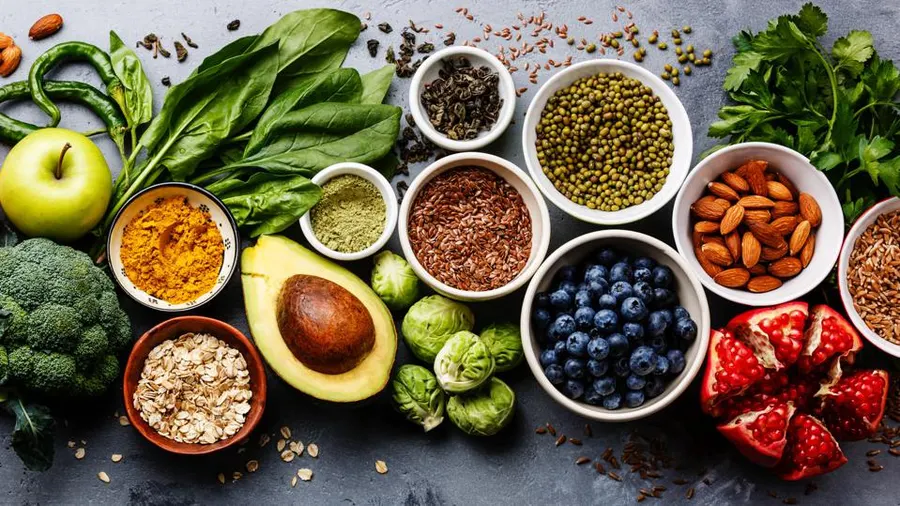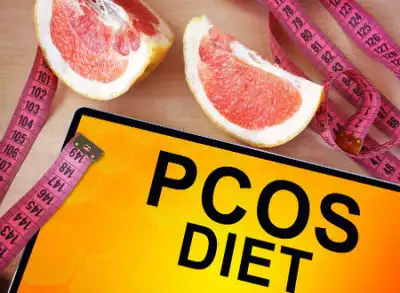The significance of child nutrition!
Children need the correct nutrients for optimal growth and development at the right times. The 1,000 days between conception and a child's second birthday are the most important for optimal nutrition.
Breastfeeding protects children from sickness, promotes brain development, and ensures that they have a safe and wholesome food source for the first two years of life. According to UNICEF and the WHO, infants should start breastfeeding within an hour of birth, be breastfed exclusively for the first six months, and breastfeed for at least another two years. To learn more about child nutrition, please get in touch with us!
Children should start eating solid foods at six months of age. Early childhood meals should be nutrient-dense and include a range of food categories. Children should be fed often and in sufficient amounts throughout the day. Food should be prepared and served with sanitized hands and dishes, and caregivers should interact with their children to recognize when they are hungry.
Before the age of two, eating habits are more crucial than any other life period. However, many babies and young kids today do not get the nourishment they require to live and grow.
Less than half of newborns worldwide are taking advantage of nursing during their first hour of life, which can save their lives. And barely three out of every five infants under six months are exclusively breastfed. Learn more about the role of nutrition in child development!
Too frequently, the first foods offered to children are monotonous and lack energy and nutrients. The minimal diversified diet required for optimal growth and development is only consumed by one in three kids aged 6 to 23 months worldwide.
Young children's diets usually consist of cereals and are deficient in fruit, eggs, vegetables, dairy products, fish, and meat. More people are being served packaged foods with lots of salt, sugar, fat, and sugary drinks.
The consequence of poor child nutrition
In a new study on children, food, and nutrition released today, UNICEF warned that an unacceptably large number of kids are experiencing the results of bad diets and a failing food system.
Between 6 months and two years, nearly two out of every three kids are not given nourishment that supports their quickly developing bodies and brains. They run the risk of having a developing brain, learning disabilities, lowered immunity, higher infections, and, in several cases, death.
We've forgotten this most fundamental truth despite all the recent advancements in technology, culture, and society: children who eat poorly live poorly.
Millions of kids live on unhealthy food since there aren't any other options available to them. Malnutrition needs to be understood and addressed differently: Providing children with the correct foods is crucial, rather than just enough food. Today that is the problem we all face. The report's assessment of child malnutrition in the twenty-first century in all of its manifestations is the most thorough to date. The article discusses the triple burden of malnutrition, which includes undernutrition, hidden hunger brought on by a lack of critical nutrients, and overweight in children under the age of five. It makes note of the following global statistics:
1. 149 million youngsters are underweight for their age or have impaired growth.
2. Fifty million kids are wasted, underweight, or excessively tall.
3. One in two children, or 340 million youngsters, need essential vitamins and nutrients like vitamin A and iron.
4. There are 40 million overweight or obese youngsters.
The study warns that bad eating and feeding habits develop in children as early as the first year of life. Even though breastfeeding, for instance, can save lives, only 42% of infants under the age of six months are exclusively breastfed, and an increasing proportion of babies are fed infant formula.
In higher middle-income nations like Brazil, China, and Turkey, sales of milk-based formula increased by 72% between 2008 and 2013, partly due to inappropriate marketing and inadequate legislation and programs to encourage, protect, and promote breastfeeding. Meet the best child nutritionist in India!
The survey claims that too many kids are exposed to the incorrect type of diet as they start moving from soft to solid foods around the six-month mark. Nearly 45% of kids between the ages of 6 months and two years old aren't given any vegetables or fruits anywhere in the world. Almost 60% of people don't eat any dairy, seafood, meat, eggs, or eggs at all.
As children age, the amount of bad food they are exposed to is worrying. This is partly due to inappropriate marketing and promotion, the prevalence of ultra-processed meals in urban and rural regions alike, and the easy availability of fast food and beverages with added sugar.
For instance, the study reveals that 46% of school-age teenagers in low—and moderate-income countries eat fast food at least once a week, and 42% drink carbonated sugary beverages at least once a day. In high-income nations, the rates for teens increase to 62% and 49%, respectively.
Obesity in children
Combating malnutrition in all its manifestations is critical to ensuring universal health and well-being and, as a result, long-term development. Coherent and creative measures are required throughout the food system and other sectors to provide access to a diverse, balanced, and nutritious diet.
It is commonly believed that the rise in obesity is caused by a disparity between calorie intake and cost, with a boost in the positive energy equation directly related to the lifestyle chosen and food consumption preferences.
Nonetheless, there is mounting evidence that an individual's genetic background plays a role in predicting obesity risk. Research has significantly advanced our knowledge of the elements contributing to obesity.
One of the most essential elements investigated as a reason for obesity is genetics. According to several studies, BMI is 25-40% heritable. Yet, to alter weight, genetic vulnerability is frequently combined with other environmental and behavioural variables.
A hereditary component causes less than 5% of occurrences of childhood obesity. As a result, while genetics can play a role in obesity development, it's not the cause of the substantial increase in juvenile obesity. See one of the best child nutrition in India!
The basal metabolic rate, often known as "metabolism," is the amount of energy expended by the body during typical resting processes. It has also been considered a potential cause of obesity.
The basal metabolic rate accounts for 60 percent of total energy expenditure in inactive individuals. Obese people are thought to have a lower basal metabolism rate. Differences in basal metabolic rates, on the other hand, are unlikely to cause increased obesity rates.
Availability and regular exposure to nutritious meals are critical for building preferences and overcoming food aversions. Mealtime organization is vital since studies show that families eating together eat more healthfully.
Additionally, dining out or watching Television while eating is linked to greater fat consumption. The parents' feeding style is also important. The author discovered that authoritative feeding (deciding which meals to serve, allowing the kid to pick, and offering reasons for healthy alternatives) is connected with positive cognitions regarding healthy foods and better consumption.
Surprisingly, authoritarian restrictions on "junk food" are linked to an increased appetite for unhealthy foods and a greater weight.
Government and societal policies may also encourage healthy behavior. Research shows that flavor is the most crucial element in teen snack selections, followed by price and hunger.
Nutritional variables have been intensively researched for their potential impacts on growing obesity rates. Fast food intake, sugary beverages, snack items, and portion sizes are among the dietary aspects that have been studied.
Society can mitigate the rising issue of childhood obesity if it focuses on the reasons. Several factors contribute to obesity in children, some of which are more important than others.
A community-based physical activity and nutritional intervention with a school element is more successful at preventing obesity and overweight.
A variety of factors can cause obesity in children. Some of these causes are as follows:
1. A sedentary way of life
2. Unbalanced eating habits
3. Overindulging in fast food
4. Eating high-calorie foods
5. Consuming a lot of food
6. Consuming an excessive amount of sugary drinks
7. Mood swings
8. Family's socioeconomic status.
9. Some ailments, such as adrenal and thyroid disorders
Obesity treatment with child diet plan, health and nutrition
Obesity therapy in kids must be handled professionally and holistically. This includes a team of experts such as dietitians, sports therapists, family support, and child compliance. What is child nutrition? Call us now!
The most essential objective of childhood obesity therapy is to maintain weight management throughout the child's life. As a result, regular nutrition and athletics should be incorporated into the child's daily routine. The following is indeed a list of recommendations for treating childhood obesity.
1. More enjoyable hobbies that entail mobility
2. More time to play
3. Physical exercise, ideally as a member of a team for sports
4. Increasing your intake of fruits and veggies
5. A practice of eating frequent, nutritious meals
6. Reduce your intake of sugary and fizzy beverages.
Obesity and child diet plan & nutrition
The five major food groups, which comprise grains, dairy, protein, veggies, and fruit, are an excellent place to start with any diet. Because the quantities of each food category are highly influenced by age, genetic composition, and physical activity, all kids will have varied portion sizes.
In other words, even if two kids of the same age and gender are the same age, they may require different portions. That's why it's critical to avoid comparing your child's diet to that of other youngsters. Furthermore, nutrition is essential because children are in a growth and development phase.
In reality, weight reduction in children differs from weight loss in adults. This is why we stated that treating childhood obesity requires a collaborative effort. Nutritional restrictions used to lose weight in children can result in malnutrition, eating disorders (anorexia and bulimia nervosa), poor focus, and stunted growth.
As a result, energy-restricted diet plans are not suggested in the nutritional therapy of adolescents and obese children. In some circumstances, however, energy-restricted meal programs may be beneficial. It is dependent on the child's circumstances.






